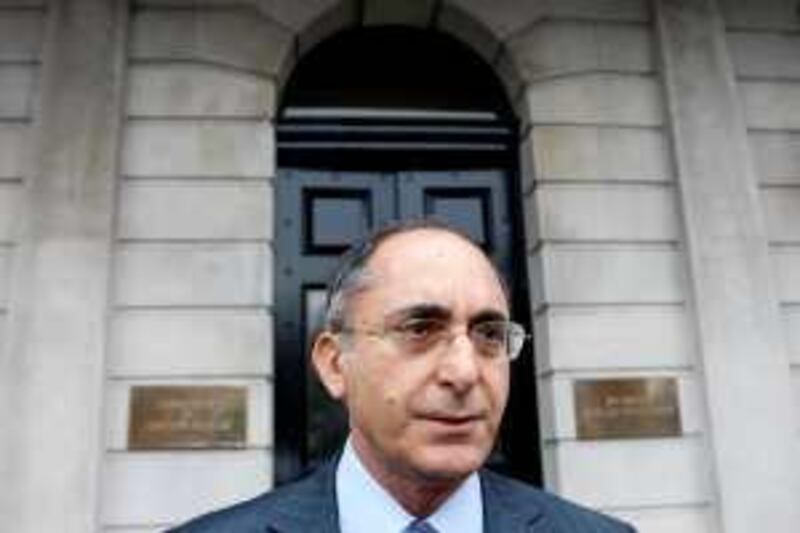LONDON // The use of cloned UK passports in the assassination of Mahmoud al Mabhouh has so infuriated British ministers that they are considering reneging on an earlier pledge to protect visiting Israeli politicians from arrest for alleged war crimes. With the number of suspects carrying British passports now standing at 12, a promise by the prime minister, Gordon Brown, to the Israelis two months ago to legislate to protect their officials from arrest in the UK "has been quietly kicked into the long grass", it was claimed yesterday.
"The Israeli government's attitude towards the UK over the Dubai killing has deeply annoyed the Foreign Office, not least David Miliband [the foreign secretary]," said a senior diplomat in London. "The prime minister promised in December that the law would be amended as a matter of urgency to protect visiting Israeli politicians and military personnel from arrest. All of a sudden, though, that urgency has gone out of the window."
A promise to legislate was made after the Israeli opposition leader, Tzipi Livni, called off a trip to London when pro-Palestinian activists in Britain obtained an arrest warrant for her on Gaza war crimes charges. The warrant was obtained under the principle of universal jurisdiction. It was the latest of a string of similar warrants obtained against Israeli officials in recent years. Mr Brown's embarrassment over the Livni case, however, has been superseded, at least temporarily, by fury over Tel Aviv's refusal to co-operate over the suspected Mossad involvement in last month's Dubai hit.
All 12 Britons who had their identities stolen for the suspects' passports are understood to hold dual UK-Israeli citizenship. But Avigdor Lieberman, the Israeli foreign minister, told Mr Miliband during a 45-minute meeting in Brussels this week that his government would not help with a British criminal investigation until solid evidence of Israeli involvement was produced. In the British parliament, Mark Durkan, a Northern Irish MP, accused the Israeli authorities of treating the UK government with disdain.
During questions to the prime minister, he said that the Israeli government had shown "utter contempt" for standards of international relations by refusing to help the British investigation. He asked Mr Brown: "Can you confirm that you condemn not only the use of false UK passports in a criminal operation, but any act of state-sponsored assassination anywhere?" Mr Durkan also demanded that the government drop plans to amend the law on universal jurisdiction because of the "utter contempt in the disdain with which the Israeli foreign minister treated the foreign secretary this week".
In reply, Mr Brown condemned "state-sponsored terrorism in any country" and said "there are questions about the misuse of British passports that have to be answered". William Hague, the opposition Conservative' Party's shadow foreign secretary, called on the government yesterday to exert more pressure on Israel to come up with answers. "The government has avoided addressing the crucial issue of whether they have sought specific assurance from Israel that it will not sanction, for whatever reason, the misuse of British passports," he said.
Similar questions are being asked in Dublin where the identities of six Irish citizens are now thought to have been stolen to provide the suspects with passports. Unlike the British documents, the Irish identities were those of people who lived in the country, not Israel. What has annoyed many Irish politicians is that the Irish address used by one of the suspects on the hotel register in Dubai is a house in Dublin owned by the brother of Albert Reynolds, the former prime minister.
dsapsted@thenational.ae






